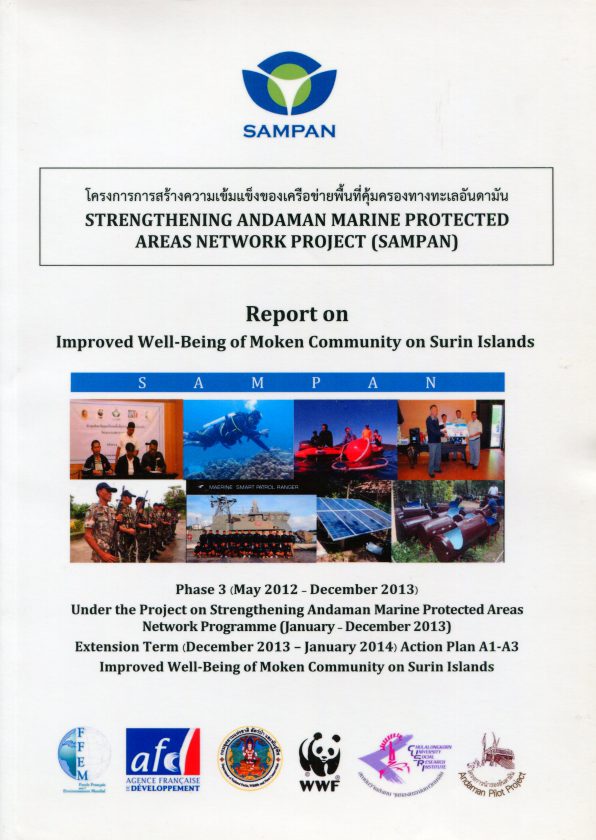
Sustainable development is often confused with extreme conservation. On the contrary, it means the balance between environment, economics, and social sector as shown in the diagram below. The fact that the Royal Forestry Department (then) could declare the place a National Park points out the Moken way of life in the past has been living along harmoniously with the local environment. Therefore, National Park management should encourage cultural practices that promote conservation while supporting appropriate means to enhance quality of life. National Park’s performance and achievement should be evaluated on how well they work with the community and balance these sustainable components, not on how well they preserve the environment at social and cultural costs of these traditional communities.
After the tsunami in 2004, the project on Strengthening Andaman Marine Protected Areas Network Programme (SAMPAN) was conceived with the support from the French Global Environment Facility (FFEM -Fonds Français pour l’Environnement Mondial) and French Agency for Development (AFD – Agence Française de Developpement) together with World Wildlife Fund or WWF. The cooperation was then made between SAMPAN and the Department of National Park, Wildlife and Plants, and this project on “Improved Well-Being of Moken Community on Surin Islands” was carried out by the Andaman Pilot Project, Social Research Institute, Chulalongkorn University. This project aimed to promote community capacity in participatory management, enable the Moken adults to set up tourism program in recognition of cultural traditions, and build awareness among the young generations about environmental conservation.
The Andaman Pilot Project. 2014. Report on Improved Well-being of Moken Community on Surin Islands. Bangkok: Chulalongkorn University Social Research Institute.